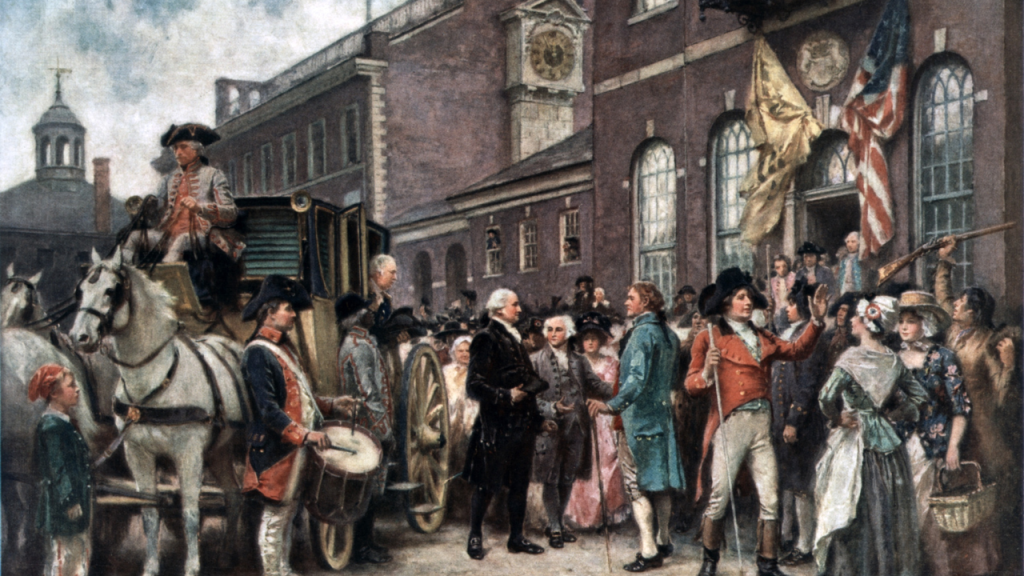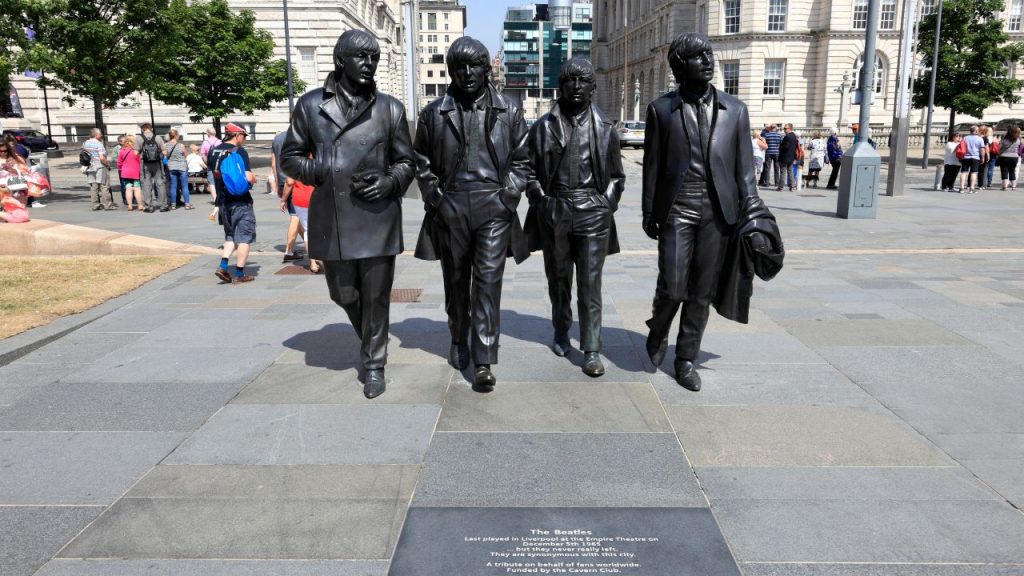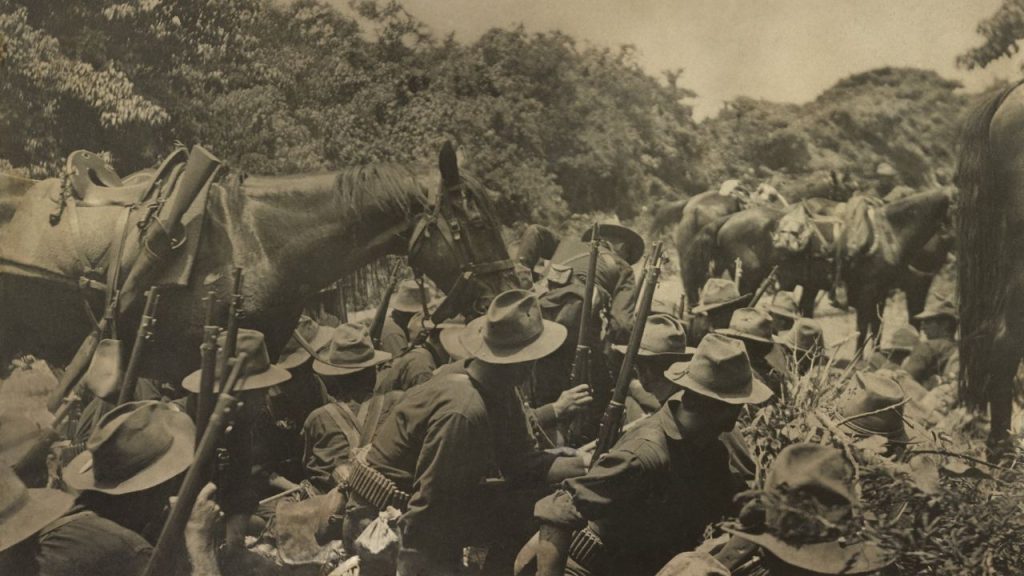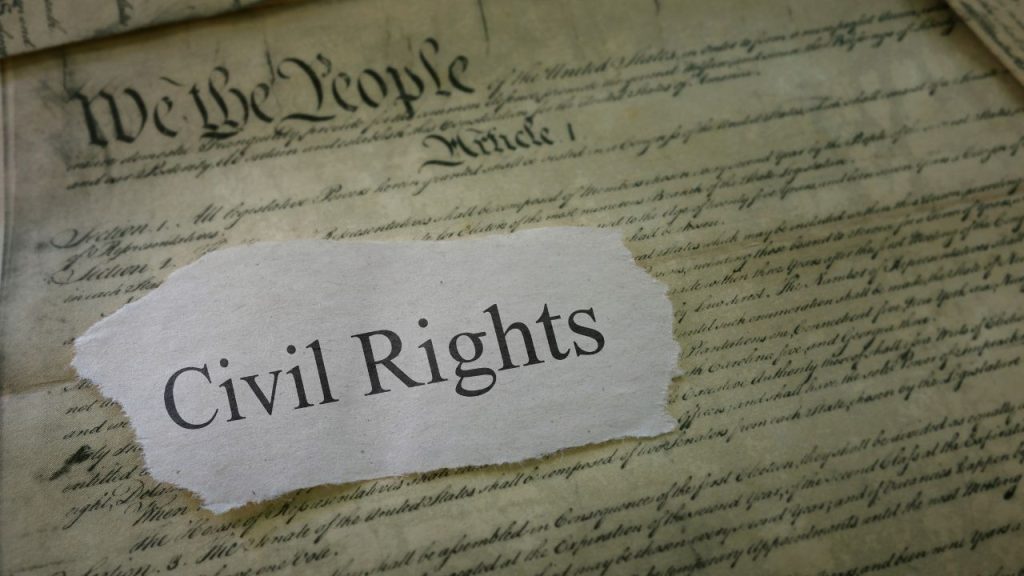Looking for some fun facts about April to share with your children or students? Follow along for 10 events that have occurred throughout history during the month of April.
April 11, 1970: Apollo 13 Launches from Cape Kennedy
“Houston, we have a problem.” On April 11, 1970, during the Apollo 13 mission to the moon, an oxygen tank aboard the spacecraft exploded. It crippled vital systems and threatened the lives of astronauts Jim Lovell, Jack Swigert, and Fred Haise.
The crew and NASA worked together to find solutions and return home safely.
Through their heroic efforts, Apollo 13 safely returned to Earth on April 17, 1970. It marks a testament to human resilience and teamwork in the face of adversity.
April 30, 1789: The Inauguration of George Washington

George Washington became the first President of the United States on this date at Federal Hall in New York City. Washington’s inauguration marked the beginning of a new era in American history as the Republic attempted to establish its identity and institutions.
Washington emphasized the importance of virtue, unity, and the rule of law in his inaugural address. He set a precedent for presidential leadership that shaped the course of the United States for centuries to come.
April 20, 1611: The Premiere of Shakespeare’s “Macbeth”
William Shakespeare’s tragedy Macbeth had its first known performance at the Globe Theatre in London, England. Macbeth explores many themes common in Shakespeare’s work such as power, ambition, and the consequences of unchecked ambition.
Macbeth has risen in prominence to become one of Shakespeare’s most celebrated and frequently performed plays. Known for its vivid characters and dramatic plot twists, the play continues to resonate with audiences worldwide.
April 4, 1964: The Beatles Dominate the US Singles Chart

In the 1960’s, people measured a musician’s popularity based on the number of singles purchased in stores.
The Beatles made history on April 4, 1964 when their songs filled the top five spots on the US singles chart.
It spearheaded the British invasion of the American music scene that was to last over the next few years.
The Beatles’ innovative sound, infectious melodies, and sheer confidence left a mark on generations of fans worldwide. The Beatles helped bring American and British cultures together through their music, changing the music scene forever.
April 14, 1828: The Publication of Noah Webster’s American Dictionary
Noah Webster, published the first edition of “An American Dictionary of the English Language” on April 14, 1828.
While dictionaries were popular at the time, Webster’s dictionary represented a significant departure from British English dictionaries. He included uniquely American spellings and definitions.
Webster’s publication played a crucial role in shaping the identity of American language.
The new dictionary helped to foster a sense of national pride and cultural autonomy. It contributed to the development of a distinct American identity.
April 21, 1898: The Outbreak of the Spanish-American War

The US-Spain conflict started when the USS Maine sank in Havana Harbor on February 15, 1898.
The war lasted less than four months and led to the Treaty of Paris in December 1898. Spain relinquished control of its colonies to the United States.
The Spanish-American war was a turning point in American foreign policy. It proved the United States as an emerging global power. The war had profound consequences on the territories involved, resulting in the conquest of the Philippines and Guam.
April 14, 1865: The Assassination of President Abraham Lincoln
John Wilkes Booth shot President Abraham Lincoln while he was attending a performance at Ford’s Theater in Washington DC.
Lincoln’s death sent shock waves across the United States, resulting in deep mourning. No one had ever killed a sitting US President before.
Lincoln’s death deprived the nation of leadership during a vital period of rebuilding following the Civil War.
April 11, 1968: The Signing of the Civil Rights Act of 1968

The Civil Rights Act of 1968 aimed to address housing discrimination and segregation. It prohibited discrimination based on race, religion, national origin, and other characteristics in housing.
The act began to dismantle societal and institutional barriers and promote greater inclusion for minority communities. It served as a crucial step forward in the ongoing quest for equality and racial justice.
April 21, 1997: Tiger Woods Wins the Masters Golf Tournament
At the age of 21, Tiger Woods became the first African American to win the prestigious Masters golf tournament.
Woods’ victory was vital to breaking down racial and ethnic barriers in professional sports.
Tiger Woods subsequently became a global icon, making an impact on popular culture. Woods shattered stereotypes and challenged conventions. He paved the way for great diversity and inclusion in the world of professional golf, inspiring millions.
April 30, 1859: Publication of Charles Dickens’s “A Tale of Two Cities”
A Tale of Two Cities remains one of Dickens’ most enduring and beloved works.
Its timeless exploration of the human condition and its profound moral resonance continue to captivate readers around the world. People know Dickens as one of the greatest novelists in the English language.
April is an amazing time to teach children about many historical events. For more resources check out Learn Bright’s free lesson plans and videos;

